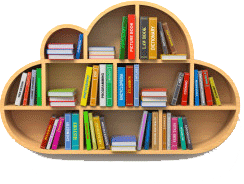 Welcome to Getting Access, a series devoted to helping you obtain the digital records you need.
Welcome to Getting Access, a series devoted to helping you obtain the digital records you need.
Alumni Libraries
Many universities and colleges extend library privileges to alumni. Benefits vary, but can include book borrowing privileges and access to online resources.
The catch: You must be a paying member of the school’s alumni association.
 The Good
The Good
The Penn State Alumni Association excels in their library access for alumni. They offer Association members book borrowing privileges and remote access to digital databases.
The databases in the Penn State Alumni Library include:
I am grateful for the access Penn State provides, but it is not a comprehensive solution. Not all journals allow universities to extend their full-institutional subscriptions to persons who are not employed by or enrolled in the university. I spend $15/year for additional JStor access through the William and Mary Quarterly because it is the only way I can download an article they have published within the last 5 years. (I keep only the most current journal because bookshelf space is scarce in my house.)
 The Not So Good
The Not So Good
Not all alumni libraries are equal. I also belong to the Cal Aggie Alumni Association, the organization for University of California, Davis alumni. Like Penn State, the University of California offers members of its alumni associations access to an “Alumni Library.” However, UC limits its library privileges to books; paid members of its alumni associations can borrow up to 5 books from any UC Library. (This benefit does not include ILL privileges.)
The University of California may tout itself as one system, but it does not have one alumni organization. Each campus has its own group and some groups add features to its UC Alumni Library. For example, the UCLA Alumni Association offers its members access to the ProQuest Research Library.
The Bottom Line
You should see if your college alumni association offers library access. If they do, and you're a member, then you may be missing out on a great benefit you already paid for. If you are not an alumni association member, perhaps the database access provided by your alumni library is worth rekindling your school spirit for.
What Do You Think?
Have you found any helpful ways for remotely accessing digital records or academic journal articles? If so please leave a comment or send me a tweet.


